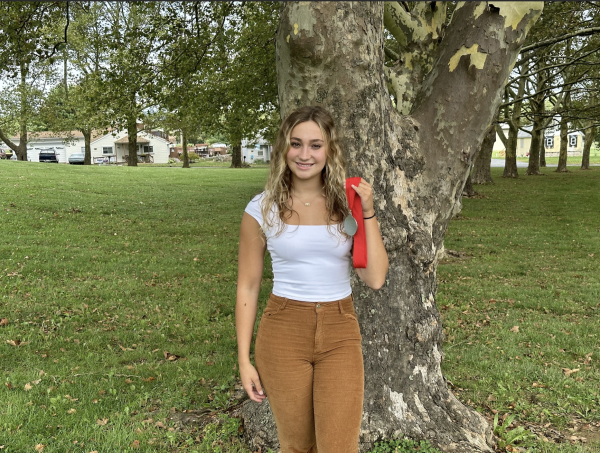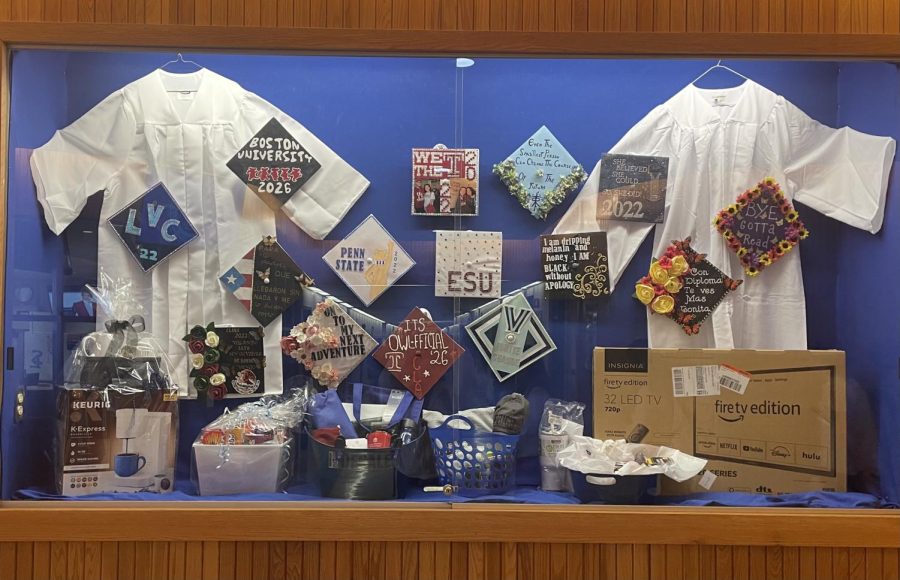Juniors: your college application questions, answered
Students designed their mortarboards with their future college.
As students begin to approach the later years of their high school career, and see the current seniors graduate, they often start to wonder what the college application process may look like.
The first step in applying to college is to visit and select multiple places that interest the student. Picking a campus that is in a beneficial location with challenging courses under the major of the applicant’s choice is essential.
“I wanted a college that I could benefit from with my intended major in mind,” senior Olivia Robinson said. “Ultimately, a college’s social and educational aspects were what drew me in, and made me want to apply.”
After selecting the main schools of interest, the student must create an application to express to the schools that they would like to be considered for their program. The application includes a variety of information about the applicant with the following: a transcript, an essay, a school profile, test scores, recommendation letters, a list of extracurricular activities, and fees that may be required.
“It does not take long to make an application, as the common app makes it easy to input information,” senior Andy Wendling said. “The majority of time comes from essays and written questions for each school.”
Essays are one of the most vital aspects of applying to a college. These essays can be about many different topics, but typically revolve around the student and their accomplishments or lessons they have learned throughout their life.
“You need a personal essay, and some colleges will ask you to write a paragraph or two about specific questions,” senior Marilou Reinhardt said. “In both cases you need to talk about something that makes you stand out from everyone else or something that really interests you.”
Since many students apply for the same colleges, it is vital that an applicant makes an effort to stand out from the others. This can include adding in extracurricular activities or academic achievements.
“Having difficult courses on your transcript will show colleges that you challenge yourself and can excel in college courses,” Wendling said. “I also think it is important to show colleges that you are well rounded: a good GPA, a plethora of extracurricular activities, and personality in your essays all bode well.”
Once the college makes a decision about who will be accepted or rejected, a letter will go out to those who applied. After the applicants find out whether or not they were accepted, the next and most vital step is to figure out what college best suits them and is a place they would like to spend the next four years.
“Truly, things always work out the way they are supposed to,” guidance counselor Mrs. Christina Piascik said. “Explore different options, and think outside of the box. Sometimes there may be an opportunity at a college that a student would have never considered.”

Throughout her time at Southern Lehigh, Isabelle Johnson has been a dedicated student-athlete and active member of her community. After spending three...


